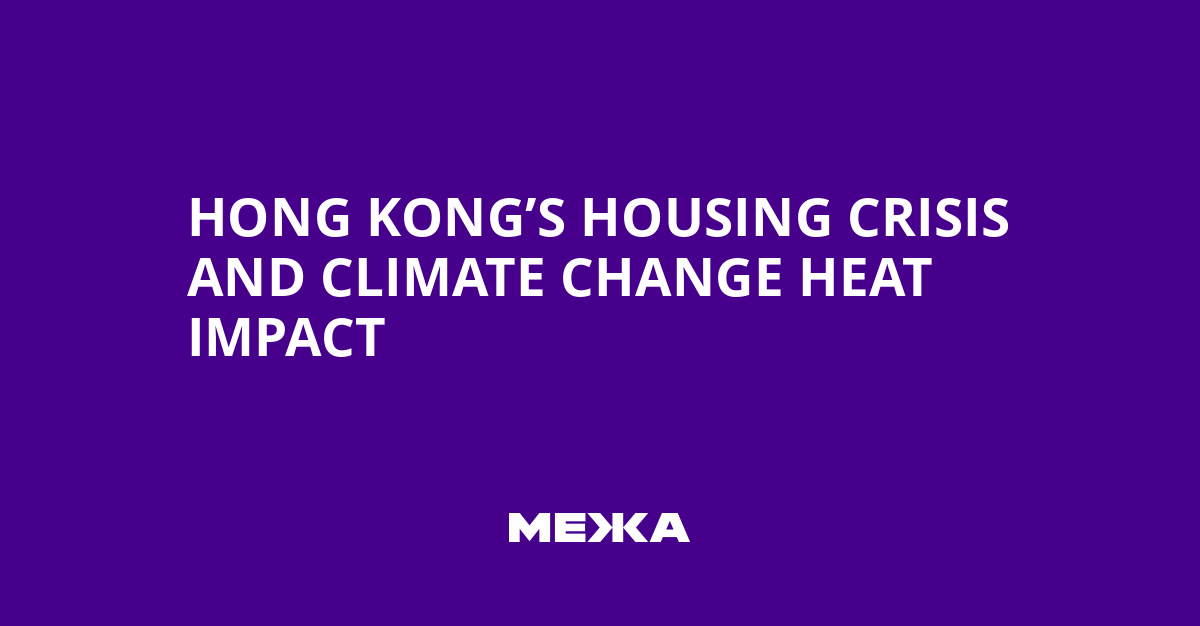On a hot Hong Kong noon, Yang Fong-yan’s apartment felt like an oven: the air conditioner is blasting, but the cramped rooftop space with a metal roof still bakes from the heat, and the thermometer inside reads 36°C (96.8°F).
She and her 13-year-old grandson live on the building’s rooftop without an elevator in the crowded Sham Shui Po district. Such living conditions are characteristic of many low-income families who have been forced to move into temporary or illegal housing due to rising rents and the shortage of public housing. Hong Kong, despite its affluent status, faces a crisis of affordable housing for the poor – a phenomenon that only intensifies the consequences of climate change.
Climate and housing conditions – rising pressure
According to a SOCO study, in such flats the indoor temperature can reach 41°C (105.8°F) even when outside is cooler. In recent years, summers have become increasingly unbearable under high humidity, and the urban heat island means that the smallest dwellings trap heat at night. More than 220,000 people live in subdivided flats, “cages,” or illegal rooftop flats, which often lack ventilation and windows, and where cockroaches, rats, and chronic hygiene problems are common. 83% of residents of such dwellings report sleep problems, and 60% report emotional instability.
“Some conditions are quite inhumane,”
– Se Lai Shan, deputy director of SOCO
Separately from air conditioning, many people have to contend with an unrelenting sense of heat: inside temperatures often exceed safe levels, and summers have become far more exhausting than in previous years.
“It’s so hot, as if you’re getting heat stroke,”
– Mr. Wu
Such heat-related wear spills into daily life: reduced sleep quality, decreased productivity, and rising anxiety in disadvantaged areas – all of this rises as housing costs climb and opportunities for low-income people shrink.
Although Hong Kong is known for its public housing programs, one of the most developed systems in the world, the city still faces a shortage of affordable housing. The government pledges to add 30,000 new affordable public housing units by 2027–2028 and to accommodate more than 21,000 temporary flats, but activists worry that these steps will not reach the most vulnerable segments of the population. “This is a pure failure of housing policy,” – Michael Wong, economist at the University of Hong Kong.
“People who really need this housing cannot get it,”
– Michael Wong, economist
For residents like Yang and her grandson Roy, housing insecurity adds psychological and financial strain. SOCO, the social organization, calls on the government to strengthen support in the form of electricity and water subsidies so vulnerable families can stay cool during extreme heat waves.
“I’m really angry. Many people will die. They won’t be able to endure it,”
– Mr. Chze
Despite promises and technical solutions, for many families in Hong Kong climate change remains a direct challenge: from a lack of space and rising heat to a lack of stable housing and financial protection. Without targeted assistance, the process of adapting to increasing heat could worsen, threatening the health and well-being of the most vulnerable population groups.
